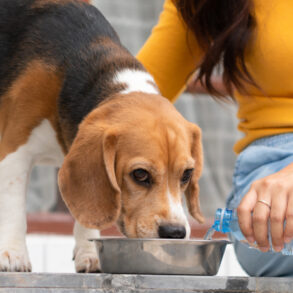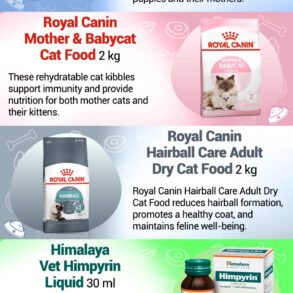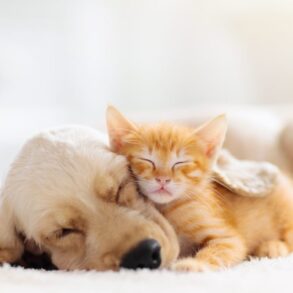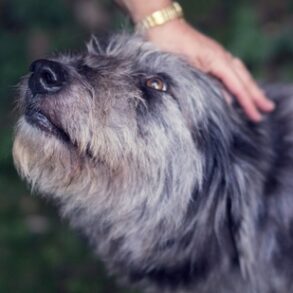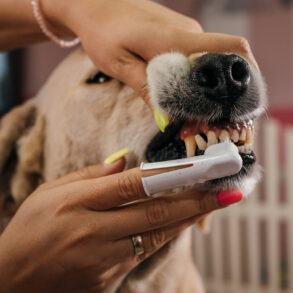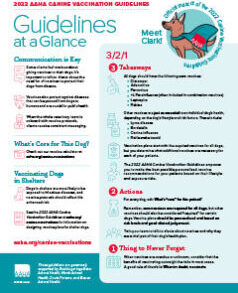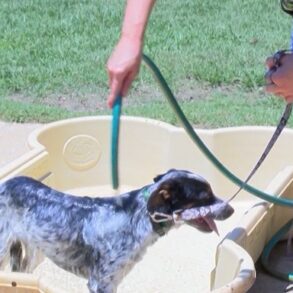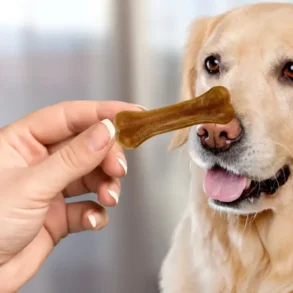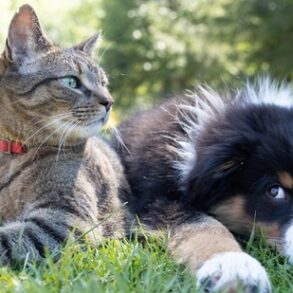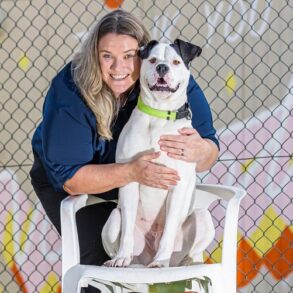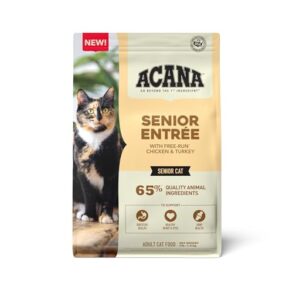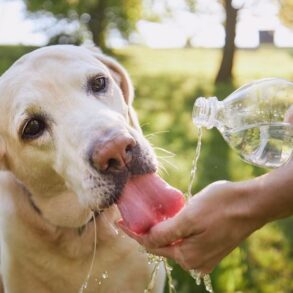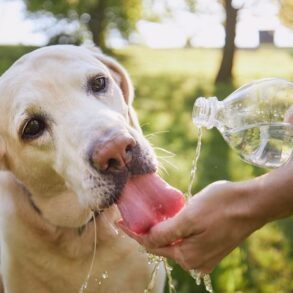As your sweet cat or dog ages, their health, appearance, routine and behavior can all start to change. These new developments may catch you by surprise and have you wondering what you can do to accommodate them. We asked animal experts to share what situations you may encounter with a senior pet and solutions to better your pet’s quality of life in their “golden years.”
The definition of a senior pet
Since senior pets often require special care, it can be helpful to know when your cat or dog is a part of that age group. “Pets are generally considered seniors when they reach the last 25% of their expected lifespan,” says Dr. Liza Cahn, veterinary consultant for Embrace Pet Insurance.
Size and species can also make a difference. Cahn says pets are considered seniors at the following ages:
- Cats: 10 years
- Small dogs (less than 20 lbs): 8-11 years
- Medium dogs (20-50 lbs): 8-10 years
- Large dogs (50-90 lbs): 8-9 years
- Giant dogs (over 90 lbs): 6-7 years
Signs of aging in pets
During this stage of life, pet owners may start to notice changes to their animal’s appearance or behavior. While aging itself does not determine a cat or dog’s health, there can be more health concerns that pop up when a pet reaches its “golden years.”
“As pets age, so too do their vital organs,” says Dr. Rebecca Greenstein, veterinary medical advisor for Rover. “I commonly treat older pets for varying degrees of kidney or liver insufficiency, heart disease, osteoarthritis, and unfortunately, cancers.”
Cognitive issues that lead to confusion, anxiety and other unusual behaviors can also emerge.
Common health issues in senior cats and dogs
Wondering what you may encounter in the daily life of your senior pet? Keep reading to learn some of the most frequent issues that occur with senior pets, if they’re a concern and how you can help your furry friend navigate them.
Weight loss
A drop in pounds often happens the older a pet gets, and this can even be accompanied by muscle loss. If you’ve checked with your vet to rule out any underlying medical issues (like kidney disease or liver dysfunction), you can simply adjust your pet’s diet.
“Offer calorie-dense, easily digestible foods like lightly cooked meats, sweet potatoes, and bone broth in small, frequent meals to maintain weight,” says holistic pet health coach Melissa Sherman of CalmingCreek.com.
But it’s also important not to overfeed, as doing so could have negative effects. “On the other hand, if a senior pet is overweight this can put additional strain on their bodies, worsening arthritis or contributing to other medical conditions such as diabetes,” adds Cahn.
Mobility issues
People aren’t the only ones who deal with joint pain, stiffness and arthritis as they age; this is a frequent occurrence with senior pets too. (Cats especially are prone to arthritis, comments Cahn). This can impact their ability to enjoy regular activities such as climbing for cats and walks for dogs.
Simple lifestyle changes can make things easier for them. “Make your home more accessible to senior pets by adding ramps/steps, non-slip rugs or mats, easy access to resources, and comfortable resting areas,” advises Cahn. “Your cat may need a low-sided litter box.”
Low-impact walks or play sessions are a great idea for kitties or canines that still have an active streak, adds Sherman.
You can also consider supporting joint health and easing discomfort with veterinary-prescribed pain medications or supplements like omega-3 fish oil, CBD or glucosamine/chondroitin.
Poor vision
“Many senior pets experience a decline in sight and some may also lose their hearing, making them more anxious and disoriented,” shares Greenstein. It can be tough for an older cat or pup to feel comfortable if they can’t easily find what they need.
What can help: “Keep their environment consistent, add night lights, and use scent markers and different textures on the floor to help them navigate safely,” suggests Sherman.
Dental problems
Problems affecting your furry friend’s teeth can pop up at any time, but you may find that they’re more prevalent in the senior stage. “Dental disease, such as gingivitis or periodontal disease, becomes more frequent as pets age, leading to painful gums, loose teeth, and difficulty eating,” says Greenstein.
Sherman says you can consider discussing dental cleaning under anesthesia with your vet. It can lead to cleaner teeth, plus an extraction of diseased or damaged teeth. (Note: Anesthesia can be more risky for older pets with other health conditions).
But even at home, basic dental care could be helpful. Does your pet resist any kind of teeth brushing? “Dental wipes or water additives can be a good alternative,” says Sherman.
If your cat or dog is having trouble eating due to dental pain or disease, offer wet foods or soften her regular kibble with water.
Chronic constipation
“Constipation is common in senior pets, especially cats, but it can often be managed with dietary changes,” comments Sherman. “Increase hydration, add fiber from canned pumpkin or psyllium, and use probiotics to support digestion.”
It’s also a good idea to make sure your furry friend has a complete and balanced diet, adds Cahn. This ensures they get all the nutrients, vitamins and minerals their body needs.
Cognitive decline
Often called “pet dementia” this common age-related condition impacts the brain similar to the effects of Alzheimer’s in humans. “Affected pets often exhibit disorientation, seeming lost or confused in familiar surroundings, changes in social interaction, disrupted sleep, anxiety, and other behavioral changes,” explains Cahn. “Diagnosis involves recognizing these signs and ruling out other medical conditions that could cause similar symptoms.”
Unfortunately, there isn’t a cure for cognitive dysfunction. But there are other steps you can take to support your pet’s mental health.
“Maintain a routine, provide mental stimulation through puzzles and scent games, and support brain health with antioxidants and calming aids,” advises Sherman. “Block off stairs or other potentially dangerous areas if they seem disoriented, and provide a safe, quiet space for them to rest.”
Improving quality of life for senior pets
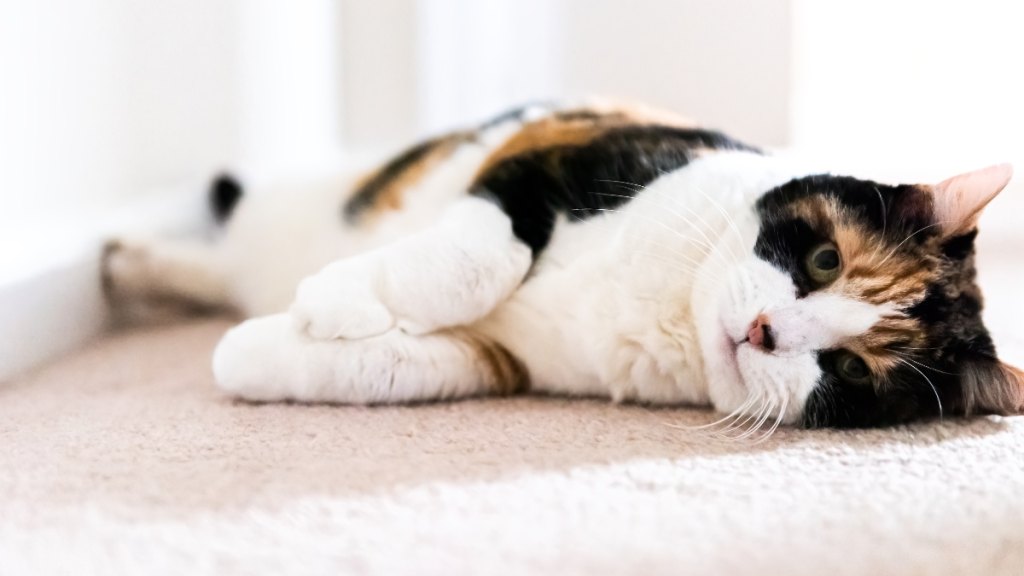
There are a number of other ways to make life as comfortable as possible for an aging cat or dog.
- A whole food diet. “Adding even 10% fresh, whole foods like unseasoned cooked meat, sardines, or lightly cooked veggies, can reduce inflammation and support overall wellbeing,” shares Sherman.
- Consistent exercise. “Even though their bodies may be slowing down, senior pets will still benefit from gentle physical activity, such as short walks and play sessions,” explains Cahn. “Be sure to provide them with plenty of enrichment and mental stimulation to keep their brains working.”
- Regular vet visits. This can make early detection possible for many conditions, shares Greenstein, and can lead to early intervention that may dramatically improve and extend your pet’s quality of life.
- Pain management. Arthritis, dental disease and cancer can all lead to discomfort for a senior pet. “Talk to your vet about appropriate pain management options, including prescription medications, supplements and alternative methods like physical therapy and acupuncture,” suggests Cahn.
When to consider euthanasia for senior pets
For owners of senior pets, it can be hard to watch your pet’s quality of life decline over time. There may come a point when euthanasia seems like something you want to consider, but it isn’t always easy to know when to make that choice.
“Euthanasia is a difficult and emotional decision, but there are signs that it may be time to have that conversation with your veterinarian, including: severe pain, loss of quality of life, inability to stand or walk, incontinence, behavioral decline and chronic illness,” says Greenstein. Your vet can provide guidance based on your cat or dog’s physical health and prognosis. They may also be able to help you utilize a quality-of-life checklist.
Even if that tough conversation isn’t happening soon for you, time with a beloved older cat or dog can feel like it’s flying by. But you can still make the most of their “golden years!”
“Consider working with an animal communicator to create a bucket list of things they’d love to do because small joys can make a big difference” suggests Sherman. “Creating special memories now means you’ll look back with love, not regret, knowing you gave them the best in their final chapter.”
This post was originally published on this site be sure to check out more of their content.








